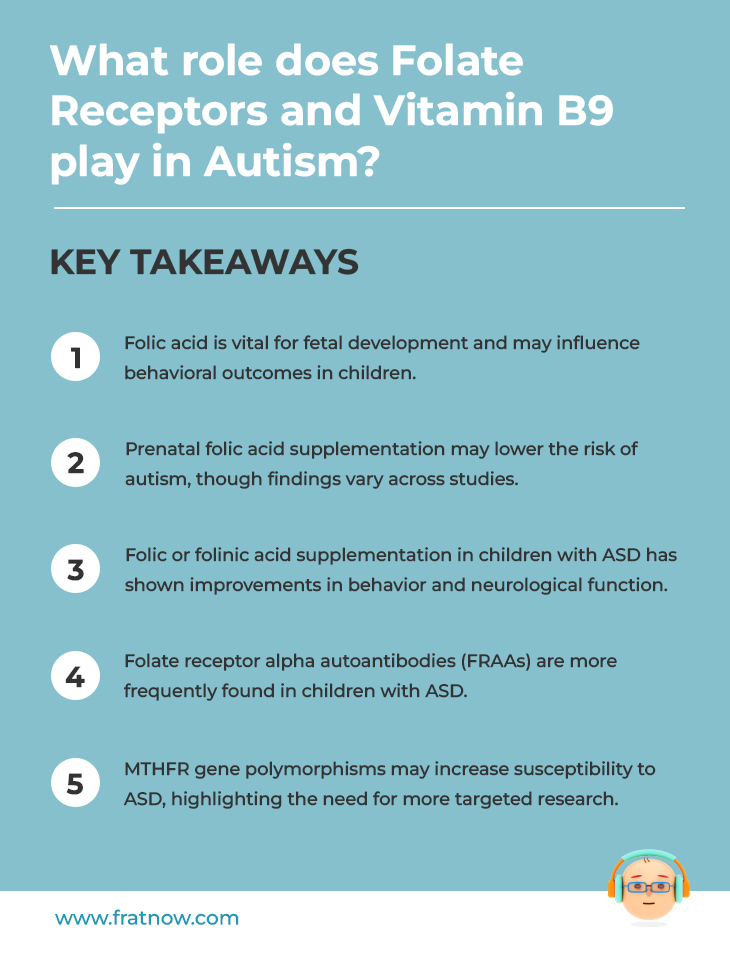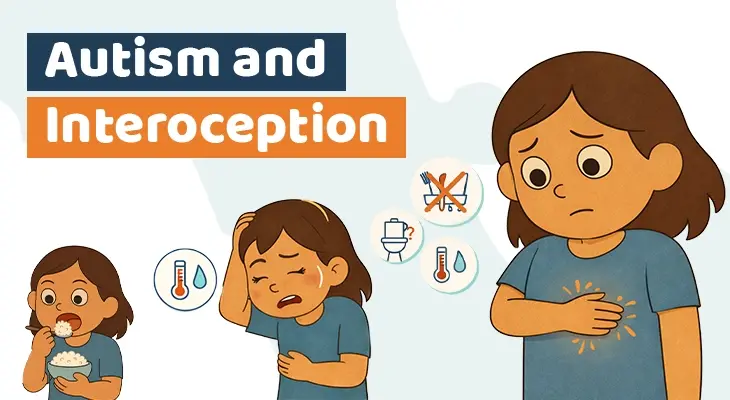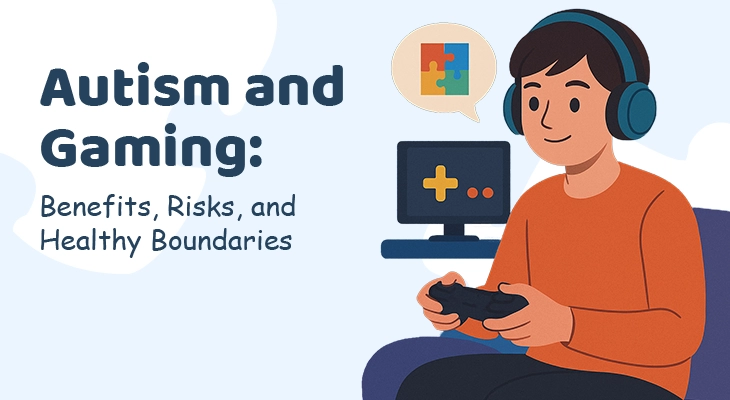
Download Download & share this Knowledge card in your network [Free Download]
Introduction
Folic acid is an important micronutrient that plays a crucial role in fetal development and cell division. Recent studies have suggested that folic acid supplementation may have a positive impact on childhood behavioral outcomes and may serve as a modifiable risk factor for autism spectrum disorders (ASD). Prenatal folic acid supplementation has been shown to reduce the risk of ASD onset, but these results are not consistent across studies. The supplementation of folic acid and/or folinic acid in children diagnosed with ASD has led to improvements in both behavioral and neurological symptoms, as well as in the concentration of one-carbon metabolites. Additionally, studies have reported a higher frequency of serum auto-antibodies against folate receptor alpha (FRAA) in children with ASD. The presence of certain MTHFR polymorphisms has also been linked to an increased risk of developing ASD. Further clinical trials with larger sample sizes and longer observation periods are necessary to better evaluate the potential role of folic acid in reducing the risk of ASD.

Download Download & share this infograph card in your network [Free Download]
Vitamin B9, also known as folate or folic acid, is an essential nutrient that has received attention for its potential role in autism spectrum disorders (ASD). Several studies have shown that women who take folic acid supplements before conception and during pregnancy have a lower risk of having a child with autism. Vitamin B9 plays a crucial role in several biological processes including the formation of red blood cells, the nervous system, the immune system, and wound healing. Additionally, it is required for the production of new cells and is therefore critical during embryonic and fetal development.
A recent study explored the effects of folinic acid, a reduced form of folic acid, on children with autism and communication difficulties. The study followed 47 children with an average age of 7 for 12 weeks, with half of the participants taking a high dose of folinic acid and the other half taking a placebo. The results showed that verbal communication was significantly improved in the group that took folinic acid, compared to the placebo group. The study also identified specific blood markers that can predict treatment response in children with autism and verbal communication difficulties, with those with folate receptor autoantibodies having a more favorable response to the folinic acid treatment.
Conclusion
These findings, published in the journal Molecular Psychiatry, suggest the potential benefits of high-dose folinic acid as a treatment for children with autism. However, more research is needed to fully understand the role of folic acid and folinic acid in autism and to determine the most effective dosing and administration methods. Larger-scale studies are necessary to validate these preliminary findings and to determine the full extent of the potential benefits of folic acid supplementation in autism.
For information on autism monitoring, screening and testing please read our blog.




